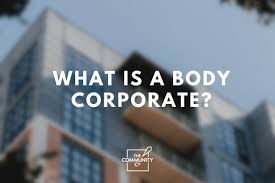Introduction
Recently I was approached by a client who owns a unit in a mixed-use scheme. The trustees had authorised the installation of an air vent and extractor fan for a unit used as a restaurant that was installed on the outside of a section within the scheme. The air vent fundamentally altered the external appearance of the scheme and caused noise and smell nuisance. The trustees were of the opinion that they had the power to authorise these installations, rather than to refer the matter to the owners for their decision. The trustees used the conduct rules in support of their submission that they were authorised to approve the installations. Furthermore, the trustees stated that as the installation was “temporary” it did not fall under the installations or alterations envisioned by PMR 29.
What does the law say in this regard?
It is important to take note that no conduct rule can override the management rules. In terms of section 10(1) of the Sectional Titles Schemes Management Act (the “STSM Act”), the management and conduct rules are both subject to the provisions of the STSM Act. Furthermore, in terms of section 10(2)(b) of the STSM Act the conduct rules may not be irreconcilable with any prescribed management rule. The management rules should deal with management issues, while the conduct rules deal with conduct issues. A conduct rule adopted by special resolution of the body corporate never erases or invalidates a management rule adopted by unanimous resolution of the body corporate. The STSM Act therefore creates a hierarchy. Just because the conduct rules give the trustees certain powers, does not mean that those powers supersede the rights and responsibilities as set out in the management rules.
PMR 29 deals with alterations to common property and states that:
“29. (1) The body corporate may on the authority of a unanimous resolution make alterations or improvements to the common property that is not reasonably necessary.
(2) The body corporate may propose to make alterations or improvements to the common property that are reasonably necessary; provided that no such proposal may be implemented until all members are given at least 30 days written notice with details of—
(a) the estimated costs associated with the proposed alterations or improvements;
(b) details of how the body corporate intends to meet the costs, including details of any special contributions or loans by the body corporate that will be required for this purpose; and
(c) a motivation for the proposal including drawings of the proposed alterations or improvements showing their effect and a motivation of the need for them;
and if during this notice period any member in writing to the body corporate requests a general meeting to discuss the proposal, the proposal must not be implemented unless it is approved, with or without amendment, by a special resolution adopted at a general meeting.”
PMR 29 sets out the necessary approvals and procedures required to authorise alterations or improvements to the common property that either are or are not reasonably necessary. Neither of these provisions that deal with improvements or alterations to common property are defined (or justified) by being “permanent” or “temporary”. Things like generators and solar panels are widely defined (by experts, professionals and academics in the field) as improvements or alterations that require approval under the process set out in PMR 29(2). These types are improvements or alterations are also temporary, but yet do still requires body corporate (and not merely trustee) approval. The reason being that these installations alter common property, and have various other consequences such noise and odour nuisance, and aesthetic considerations. The members of the body corporate all own the common property in undivided shares, and therefore have the legislated right to partake in decisions that affect their use and enjoyment of such common property.
Nuisance considerations
Furthermore, the noise and odour complaints need to be considered on their own merit. The provisions in the STSM Act that relate to nuisance protect owners and tenants from having to tolerate unreasonable sounds and smells from within sections in the scheme. Sections 13(1)(d) and 13(1)(e) of the STSM Act as well as PMRs 30(a) and 30(b) deal with these issues.
Section 13(1)(d) of the STSM Act requires that an owner must use and enjoy the common property in such a manner as not to interfere unreasonably with the use and enjoyment thereof by other owners or other persons lawfully on the premises. PMR 30(a) requires that the body corporate must take all reasonable steps to ensure that a member or any other occupier of a section or exclusive use area does not use the common property so as to unreasonably interfere with other persons lawfully on the premises, in breach of section 13(1)(d) of the STSM Act.
Section 13(1)(e) of the STSM Act requires that an owner not use his or her section or exclusive use area, or permit it to be used, in a manner or for a purpose which may cause a nuisance to any occupier of a section. PMR 30(b) requires that the body corporate must take all reasonable steps to ensure that a member or any other occupier of a section or exclusive use area does not must use a section or exclusive use area so as to cause a nuisance, in breach of section 13(1)(e) of the STSM Act.
Conclusion
The conduct rules do not confer powers on the trustees that the management rules have given to the body corporate. Therefore, any conduct rule that allows trustee approval for alterations to common property can only deal with minor changes to common property that do not have other consequences such noise and odour nuisance, and aesthetic considerations.
WRITTEN BY CARRYN DURHAM













